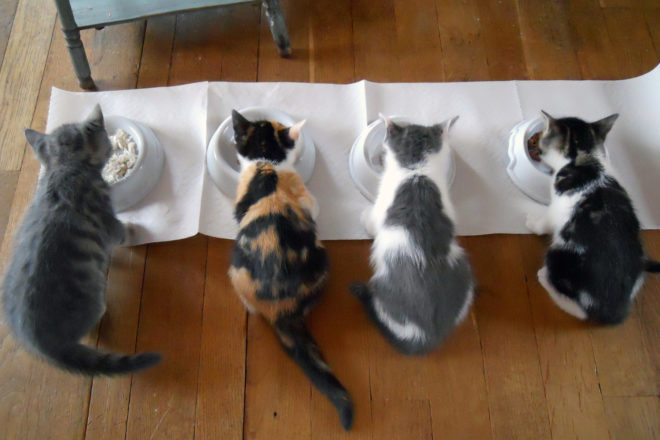Pet Talk: Providing Nutrition for a Cat
- Share
- Tweet
- Pin
- Share

Q. What is appropriate nutrition for a cat, and how can one tell if one is providing properly for nutritional needs?
A. Appropriate nutrition for a cat consists of six essential classes of nutrients that are fundamental for a healthy cat.
The first and most important nutrient is water. A deficiency of water can cause some serious problems for a feline.
The second most essential part of a cat’s diet would be protein. It is essential for growth, maintenance, reproduction and healing. It also produces the energy your feline needs to run and play.
Third are essential amino acids and non-essential amino acids. They are the building blocks of proteins. Essential amino acids must be provided in the diet because the animal cannot produce sufficient quantities.
Back in the 1970s cats were mysteriously going blind and dying from heart problems. Studies were conducted and it was discovered that the problem was due to a deficiency of the amino acid Taurine. Several commercial cat foods did not supplement their foods with it, but once they did the problem disappeared and the research was considered a success.
Non-essential amino acids are manufactured by the cat and are not needed in the diet.
The fourth nutrient is fat. Fats provide the body insulation and protection for internal organs. They are also needed for the production of some hormones, along with helping the cat absorb vitamins. Essential fatty acids must be provided in the diet because they cannot be synthesized by a feline in sufficient amounts. They help maintain the skin, coat and kidney function. Fat is also a source of energy.
Fifth are carbohydrates that provide energy for the body’s tissues and also play a vital role in the health of the intestines.
Sixth and final are vitamins and minerals. Most of them need to be present in a cat’s diet.
So this is a quick rundown of nutrients vital for a feline’s good health. Unless your cat has any special needs with specific feeding instructions from your veterinarian, he should be able to get all of his nutritional needs from a high-quality commercial cat food, which is formulated with these specific standards in mind. The amount of food you feed your feline should be based on their age, energy level and size.
I hope this helps your cat live a long and healthy life.
Sally Salopek is the owner and operator of Attend-A-Pet pet sitting services in northern Door County. She has also worked professionally with animals in health care, pet grooming, training, wildlife rehab and rescue. Send your pet-related questions to her at [email protected].
